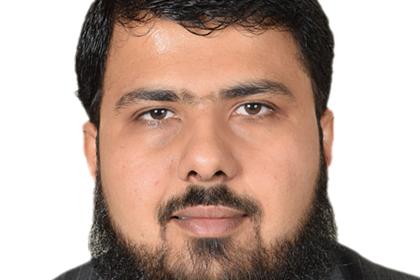
Design and Analysis of an On-Chip Processor for Autism Spectrum Disorder Children Assistance Using Their Emotions
Abstract:
Autism Spectrum Disorder (ASD) is a “spectrum” neurological disorder causing different physical and cognitive disabilities. A major dilemma faced by ASD patients is the deregulated emotions causing certain, unpredicted, and instantaneous bursts of negative emotions. These negative emotion outbursts (NEOB) cause severe self-injuries and are a major hurdle for the treatment and rehabilitation of ASD patients. The unavailability of biomarkers for early prediction along with the life-long nature of the disorder requires life-long medical care and assistance for ASD patients. A physical or cognitive assistance system that can ease the severe difficulties faced by ASD children due to these certain NEOBs is direly required.
This Ph.D. thesis has targeted the early prediction of NEOB for ASD children. Early prediction can help the parents and caregivers control and regularize their emotions. I have proposed and developed a wearable system-on-chip (SoC) based digital back-end (DBE) processor for negative emotion and NEOB prediction using Electroencephalogram (EEG) signals. The feasibility of the wearable SoC processor is highly dependent on the size (area), battery life (energy), number of EEG electrodes, scalp location of electrodes for the patient’s comfort, classification results, and the validation of the processor. A miniaturized, low-power SoC processor with a limited number of electrodes can be embedded in a headband as a patch sensor for continuous (24/7) prediction of NEOB/negative emotions. I have proposed and developed two (1st generation and 2nd generation) SoC-based DBE processors for the NEOB prediction. The identification of the most suitable channels and features for emotion prediction is an important challenge for researchers. I have also performed an extensive large-scale feature extraction using multiple benchmark emotions prediction data sets to identify the most suitable channels and features.
The 1st generation processor (DBE1) and 2nd generation processor (DBE2) provide negative emotions prediction with 73.4% and 85.4% classification accuracy respectively. The DBE processors were designed and developed using a 180nm CMOS process. The DBE1 processor was implemented using only eight EEG channels, whereas DBE2 was implemented using only two (minimum) channels. The DBE1 and DBE2 utilize an area of 5.4 mm2 and 16 mm2 respectively. The energy utilization of DBE1 and DBE2 is 16μJ and 10.13μJ per prediction respectively. The temporal and frontal location EEG electrodes are used in both DBE processors. ASD children are highly sensitive. Therefore, the location of the EEG electrodes is very important. The temporal and frontal locations cause minimum discomfort for the patients. Both DBE processors were validated using SEED and DEAP emotion prediction data sets.
List of Publications:
- Abdul Rehman Aslam, Nauman Hafeez, Hadi Heidari, and Muhammad Awais Bin Altaf, “Channels and Features Identification: A Review and a Machine-Learning Based Model With Large Scale Feature Extraction for Emotions and ASD Classification.” Frontiers in Neuroscience (FRNS), vol. 16 844851. July. 2022.
- Abdul Rehman Aslam and Muhammad Awais Bin Altaf, ”A 10.13 μJ/Classification 2-Channel Deep Neural Network Based SoC for Negative Emotion Outburst Detection of Autistic Children,” IEEE Transactions on Biomedical Circuits and Systems (TBioCAS), vol. 15, no. 5, pp. 1039-1052, Oct. 2021.
- Abdul Rehman Aslam and Muhammad Awais Bin Altaf, ”An On-Chip Processor for Chronic Neurological Disorders Assistance Using Negative Affectivity Classification,” IEEE Transactions on Biomedical Circuits and Systems (TBioCAS), vol. 14, no. 4, pp. 838-851, Aug. 2020.
- Muhammad Sheeraz, Abdul Rehman Aslam, Hadi Heidari, and Muhammad Awais Bin Altaf, ”A Closed Loop Ear Wearable EEG Measurement Device with Real-time Passive Electrode Skin Impedance Measurement for Autism Prediction,” IEEE Transactions on Biomedical Circuits and Systems (TBioCAS), 2023. [Under Review]
- Abdul Rehman Aslam and Muhammad Awais Bin Altaf, ”Machine learning–based patient-specific processor for the early intervention in autistic children through emotion detection,” Neural Engineering Techniques for Autism Spectrum Disorder, Chapter 14, pp. 287-313, July. 2021.
Conferences:
- Abdul Rehman Aslam and Muhammad Awais Bin Altaf, ”An 8.62 μW Processor for Autism Spectrum Disorder Classification using Shallow Neural Network,” 2021 IEEE 3rd International Conference on Artificial Intelligence Circuits and Systems (AICAS), 2021, pp. 1-4.
- Abdul Rehman Aslam, Talha Iqbal, Mahnoor Aftab, Wala Saadeh and Muhammad Awais Bin Altaf, ”A 10.13 μJ /classification 2-channel Deep Neural Network based SoC for Emotion Detection of Autistic Children,” 2020 IEEE Custom Integrated Circuits Conference (CICC), 2020, pp. 1-4.
- Mahnoor Aftab, Syed Adeel Ali Shah, Abdul Rehman Aslam, Waala Saadeh and Muhammad Awais Bin Altaf, ”Design of Energy-Efficient Electrocorticography Recording System for Intractable Epilepsy in Implantable Environments,” 2020 IEEE International Symposium on Circuits and Systems (ISCAS), 2020, pp. 1-5.
- Abdul Rehman Aslam and Muhammad Awais Bin Altaf, ”An 8 Channel Patient Specific Neuromorphic Processor for the Early Screening of Autistic Children through Emotion Detection,” 2019 IEEE International Symposium on Circuits and Systems (ISCAS), 2019, pp. 1-5.
Ph.D. Forum Presentations / Invited Talks:
- 2022 IEEE Design, Automation Test in Europe Conference Exhibition (DATE) Ph.D. Forum.
- International Workshop and Exhibition on Artificial Intelligence in Health Care (Guest Lecture), Oct 25, 2020, COMSTECH Secretariat Islamabad, Pakistan
- Syed Babar Ali Research Fellowship Award (2020-22).
- IEEE Circuits and Systems Pre-Doctoral Award, 2021.
- Commonwealth Split-Side Ph.D. Fellowship, University of Glasgow, UK, 2021-22.
- IEEE Circuits and Systems Student Travel Grant, 2022.
Final Defense Committee:
- Dr. Muhammad Awais Bin Altaf (Advisor, EE Dept, LUMS)
-
Dr. Shoab A Khan (External Examiner, Professor, Sir Syed CASE Institute of Technology, Islamabad)
-
Dr. Murtaza Taj (CS Dept., LUMS)
-
Dr. Muhammad Adeel Ahmed Pasha (EE Dept, LUMS)
-
Dr. Nadeem Ahmad Khan (EE Dept, LUMS)
-
Dr. Hadi Heidari (James Watt School of Engineering, University of Glasgow, UK)

